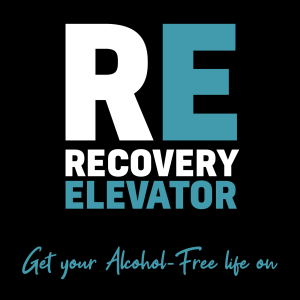
Episode 392 - One Week Without Alcohol.
Today we have Megan. She is 34, from Florida, and has been sober since June 22, 2021.
Gruvi: https://www.getgruvi.com/
Highlights from Paul
Stacking days, which is a day here, and a couple of days there, is fantastic, but your body and mind will respond faster to continuous sobriety, and I think a week is the most doable chunk of time. I know for me, even 30 days was overwhelming.
Day 1: Drink water, then more water. Eat at least one full, healthy meal. Your body is detoxing today. Anxiety is part of this. Embrace the process. Remember the pain. Exercise will help with sleep. Sleep won't be great, and night sweats are expected. Expect cravings, and ice cream is your friend.
Day 2: Expect to be tired, exhausted, and anxious. Drink water, sleep, eat ice cream and worry about sugar later.
Day 3: Sleep should improve and welcome back appetite. Eat a healthy breakfast.
Day 4: Your body is healing. Drink water, sleep and eat (sugar does help with cravings.)
Day 5: What happened? You may be sleeping better, and you are hungry. Eat some healthy food and don't worry about calories. Your brain is coming back on, which has two sides: your cognition is better, and the thinking mind is on overdrive.
Day 6: Your confidence is building, and your energy begins to return. Inflammation begins to dissipate.
Day 7: Sleep! Cellular restoration. Mental clarity improves.
Tips for week one:
Drink plenty of water
Exercise for at least 20 minutes. It gets endorphins going
Eat at least one meal with healthy greens
Put pen to paper and capture your insights
Remember, it's a week and not forever.
Seven days is the start of the healing process. Your seven days await – go get 'em.
Paul describes PAWS (Post Acute Withdrawal Symptoms) in this video
https://www.youtube.com/watch?v=esHLnz-BUXw&t=1s
Better Help: www.betterhelp.com/elevator - 10% off your first month. #sponsored
[15:40] Megan has been sober for over a year. She lives in Orlando, has two kids, is a social worker, and is getting a master's in criminal justice. She loves to travel and has been to 25 countries. She loves the beach, music, theater, working out, and theme parks.
Megan grew up in a conservative religious home with no alcohol in the house. Her grandfather was a recovering alcoholic. Alcohol was a big part of her family history, and Megan experienced a lot of generational trauma. Megan's father passed away when she was 15, and her childhood abruptly ended. Coincidentally she had her first drink that year.
Megan started using alcohol as a coping mechanism in her early twenties. Her marriage, work, and being a grown-up were a lot to manage. In 2021 she started working for a men's prison, which changed her life. Giving something back and witnessing other people's trauma helped her harness her inner strength. Megan was able to share her story and learned to adopt solid self-care practices. Slowly, she started to heal.
Today, Megan sees sobriety as a beautiful way to live, even if incarcerated. She credits the men at the prison with helping her to get sober. Her sobriety tools include self-care, Café RE, leveraging an accountability partner, focusing on the good in life, and great friends. Instagram: magicalsobermama
Kris's Summary
Together is always better. Kris just returned from the Bozeman retreat, and he loved getting to see all the participants.
Upcoming events, retreats, and courses:
- You can find more information about our events
Resources
Connect with Cafe RE - Use the promo code OPPORTUNITY to waive the set-up fee.
Recovery Elevator YouTube - Subscribe here!
Sobriety Tracker iTunes
Recovery Elevator-
We are the only ones who can do this, but we don't have to do it alone.
I love you guys.
More Episodes
 2024-10-28
2024-10-28
 2024-10-21
2024-10-21
 2024-10-14
2024-10-14
 2024-10-07
2024-10-07
 2024-09-30
2024-09-30
 2024-09-23
2024-09-23
 2024-09-16
2024-09-16
 2024-09-09
2024-09-09
 2024-09-02
2024-09-02
 2024-08-26
2024-08-26
 2024-08-19
2024-08-19
 2024-08-12
2024-08-12
 2024-08-05
2024-08-05
 2024-07-29
2024-07-29
 2024-07-22
2024-07-22
 2024-07-15
2024-07-15
 2024-06-24
2024-06-24
 2024-06-17
2024-06-17
Create your
podcast in
minutes
- Full-featured podcast site
- Unlimited storage and bandwidth
- Comprehensive podcast stats
- Distribute to Apple Podcasts, Spotify, and more
- Make money with your podcast
It is Free
- Privacy Policy
- Cookie Policy
- Terms of Use
- Consent Preferences
- Copyright © 2015-2024 Podbean.com





